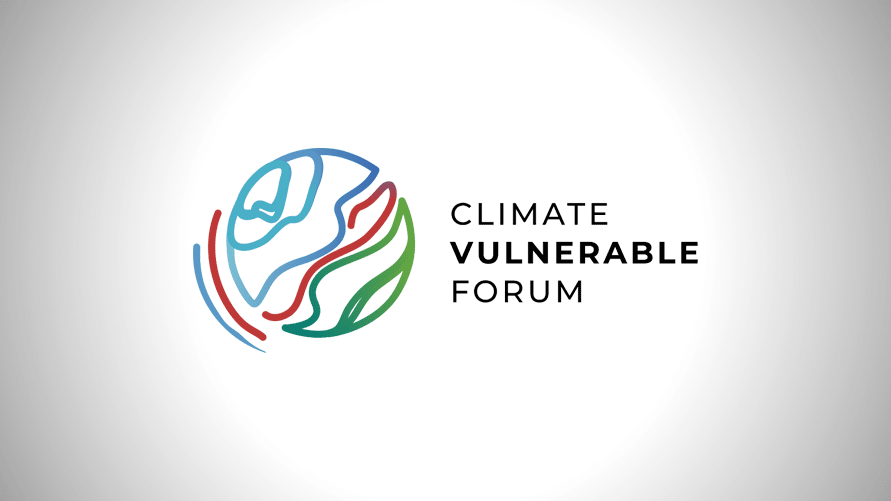Climate Glasses
70 years ago, Costa Rica saw clearly the reality of climate change. That’s why we can contribute answers and solutions today
By Mr. Ivan Alonso Delgado Pitti, CVF Fellow
Costa Rica is located in one of the world’s most vulnerable areas when it comes to the impacts of climate change.
Storms, floods and droughts affect the region with increasing frequency and intensity – and a significant percentage of the population resides in high-risk areas. Loss and damage associated with extreme weather events increases year after year at a social, economic and environmental level.
I’m all too aware of this, because this is my home: a Central American country which is suffering from the climate emergency. But despite not bearing historical responsibility for climate change, Costa Rica is part of the solution. Thanks to our experience, and drawing on citizen participation and traditional knowledge, we offer the world answers to difficult questions.
As early as the middle of last century, we put on climate glasses and began to see the world in a way that few other countries did. We understood that adaptation was the human face of climate change, and saw that we had to adapt quickly to come out stronger in the face of inevitable adversity.
Since then, Costa Rica has been a laboratory for the planet, pioneering good green practices. In the 1960s we built the first hydroelectric plants. In the 1970s we conserved our first national parks.
We set ourselves the task of making decisions based on the best available science, to contribute to the world with examples and measurable, verifiable and reportable public policies.
National expectations for COP27
As a member of the Forum of Countries Vulnerable to Climate Change, Costa Rica recognizes the need to move towards its Climate Prosperity Plan. The CPP must be pursued in tandem with the country’s National Contributions, Policy and National Adaptation Plan, as well as other existing legal instruments that contribute to maintaining the continuity of public services and guaranteeing the resilience of communities and ecosystems.
Within the Prosperity Plan we recognize the local and subnational dimensions with a vision of an equitable future across gender, youth and civil society. It is a roadmap for financing and cooperation. Our communities require access to climate services and the ability to use climate information to formulate programs and projects.
As a laboratory of good green practices, Costa Rica has long supported decision-making based on the best available science and has provided the necessary tools to create local climate public policies in a measurable, verifiable and reportable way. By understanding, early on, that adaptation is needed to address the human impacts of climate change, we have been able to share with the international community the examples and traditional knowledge of our canton.
For COP27, we carried out an Empowerment Strategy in compliance with Article 12 of the Paris Agreement. We offer the world a Climate Risk Assessment Methodology for Infrastructure and have shared our successful experience of water reservoirs as a nature-based solution which has generated green jobs for women farmers, who previously had no water for their crops.
Regional expectations for COP27
Countries across the Central American region, as evidenced by IPCC Assessment Reports, are among the most exposed to extreme hydro-meteorological phenomena.
Such extreme weather has a severe impact on livelihoods, social and productive infrastructure and vital ecosystems. This in turn worsens social deficits, increases the mobility of populations living in poverty and puts pressure on the institutional capacities and fiscal resources of our states.
Climate change in our region is exacerbating and deepening existing economic and social problems among our peoples, including those caused by the COVID 19 pandemic. This undermines national and regional efforts to meet the Sustainable Development Goals (SDGs) as well as the objectives of the Conventions on biodiversity and desertification and drought.
We call on the developed countries, the main emitters and those responsible for the global climate problem, to ratify their commitments at COP27, accelerate climate action and be consistent with the Glasgow Climate Pact of COP26.
We demand immediate changes and greater effort to achieve the objectives of the Paris Agreement, increasing ambition for the goal of 1.5°C through Nationally Determined Contributions – and we demand that they comply with at least a 50% reduction in CO2 emissions by 2030.
Our region has been responsibly assuming its Paris Agreement commitments, based on the principle of Common but Differentiated Responsibilities and Respective Capacities.
In light of this, we demand compliance with the mobilization of US $100 billion per year, as ratified in the Glasgow Pact, to guarantee we have the means to implement the pillars of the Convention (among them adaptation, mitigation, capacity building and technology transfer), including the new collective quantified climate finance target.
We support discussions on the transition through Article 6 of the Paris Agreement, to strengthen and increase the financing of the Adaptation Fund. We propose that the fourth review and replenishment of the Fund focus on turning it into a financial instrument to support the need to address vulnerability and promote the adaptation of our region.
As a Central American region, we have a regional portfolio of outstanding climate innovation. Together we hold the solutions to the global climate emergency.

